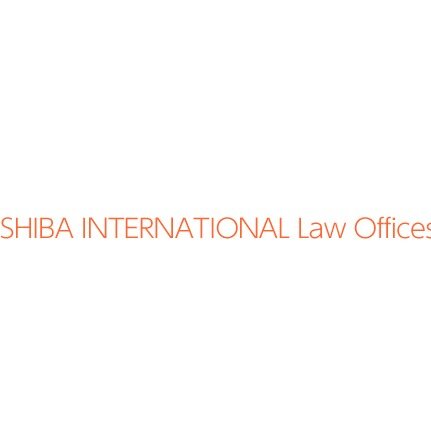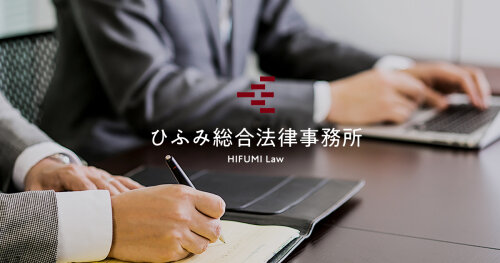Best Copyright Lawyers in Tokyo
Share your needs with us, get contacted by law firms.
Free. Takes 2 min.
List of the best lawyers in Tokyo, Japan
About Copyright Law in Tokyo, Japan
Copyright law in Tokyo, Japan, operates under the broader framework of Japanese copyright legislation. The primary legislation governing copyright is the Copyright Act, which provides authors and creators with exclusive rights to their works. This includes control over reproduction, distribution, and adaptation of the works. Copyright protection in Japan is automatic upon the creation of a work, meaning there is no need for registration, although it can be beneficial for enforcement purposes. The term of copyright protection typically lasts for the life of the creator plus 70 years.
Why You May Need a Lawyer
There are several scenarios where seeking legal advice on copyright in Tokyo, Japan, may be necessary. If you are a creator or business seeking to protect your intellectual property from infringement, a lawyer can help you navigate both local and international protections. Additionally, if you are accused of copyright infringement, legal counsel can assist in representing your interests and negotiating settlements. For businesses, understanding copyright law is crucial when producing, distributing, or licensing content to avoid litigations.
Local Laws Overview
Copyright law in Japan emphasizes both moral and economic rights of the creator. Moral rights include the right to attribution and the right to maintain the integrity of the work, while economic rights cover financial gains from the work's usage. Japan is a member of the Berne Convention, aligning its laws with international standards, but it also has specific regulations that must be adhered to locally. Importantly, Japan enforces strict penalties for copyright infringement, including civil remedies and criminal sanctions, emphasizing the need for diligent compliance.
Frequently Asked Questions
What types of works are protected under copyright in Japan?
Under Japanese law, protected works include literary works, music, paintings, sculpture, architecture, film, choreography, and computer programs, among others.
Do I need to register my work to obtain copyright protection in Japan?
No, registration of copyright is not necessary in Japan for protection. Rights are automatically granted upon creation of the work.
What is "fair use" in Japan, and how does it differ from other countries?
Japan has a narrower scope of fair use compared to countries like the U.S. Instead, it uses specific exemptions that allow limited use without permission under certain circumstances, such as educational purposes or news reporting.
How long does copyright protection last in Japan?
The standard term of protection is the life of the author plus 70 years. For corporate or anonymously created works, it is typically 70 years from publication.
What are moral rights, and how are they protected?
Moral rights protect the personal connection between creators and their work, including rights to attribution and integrity. In Japan, these rights cannot be transferred, only waived.
How can I enforce my copyright in Japan?
You can enforce your rights by seeking injunctions, claiming damages, or reaching settlements with infringers. Legal counsel can guide these processes effectively.
What are the penalties for copyright infringement in Tokyo?
Penalties for infringement can include hefty fines and imprisonment, with the severity based on the nature and extent of the infringement.
Can software be copyrighted in Japan?
Yes, software and computer programs are protected as literary works under Japanese copyright law.
How does copyright apply to online content in Japan?
Online content is treated similarly to offline materials, covering text, images, audio, and video published on the internet.
Can I transfer or sell my copyright in Japan?
Yes, economic rights can be transferred or licensed to others. However, moral rights remain with the original creator.
Additional Resources
For further assistance and information, individuals can reach out to organizations such as the Japan Copyright Office, the Agency for Cultural Affairs, and the Japan Patent Office. These entities provide resources and guidance on copyright issues.
Next Steps
If you require legal assistance for copyright matters, consider contacting a specialized copyright lawyer in Tokyo. Begin by gathering all pertinent information about your case, including documentation of your work and any correspondence if infringement is involved. Seek recommendations for reputable law firms or professionals who specialize in intellectual property law to ensure effective legal support.
Lawzana helps you find the best lawyers and law firms in Tokyo through a curated and pre-screened list of qualified legal professionals. Our platform offers rankings and detailed profiles of attorneys and law firms, allowing you to compare based on practice areas, including Copyright, experience, and client feedback.
Each profile includes a description of the firm's areas of practice, client reviews, team members and partners, year of establishment, spoken languages, office locations, contact information, social media presence, and any published articles or resources. Most firms on our platform speak English and are experienced in both local and international legal matters.
Get a quote from top-rated law firms in Tokyo, Japan — quickly, securely, and without unnecessary hassle.
Disclaimer:
The information provided on this page is for general informational purposes only and does not constitute legal advice. While we strive to ensure the accuracy and relevance of the content, legal information may change over time, and interpretations of the law can vary. You should always consult with a qualified legal professional for advice specific to your situation.
We disclaim all liability for actions taken or not taken based on the content of this page. If you believe any information is incorrect or outdated, please contact us, and we will review and update it where appropriate.
















